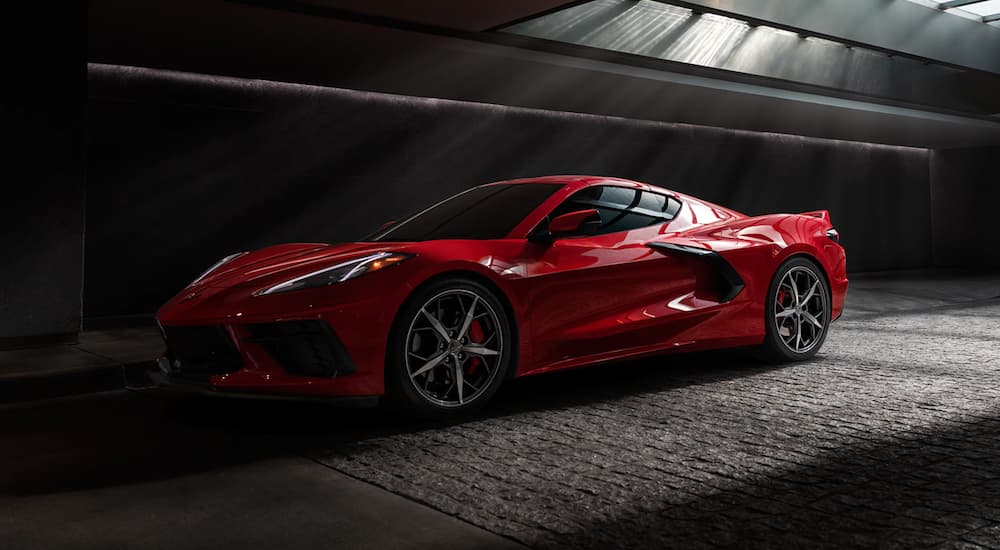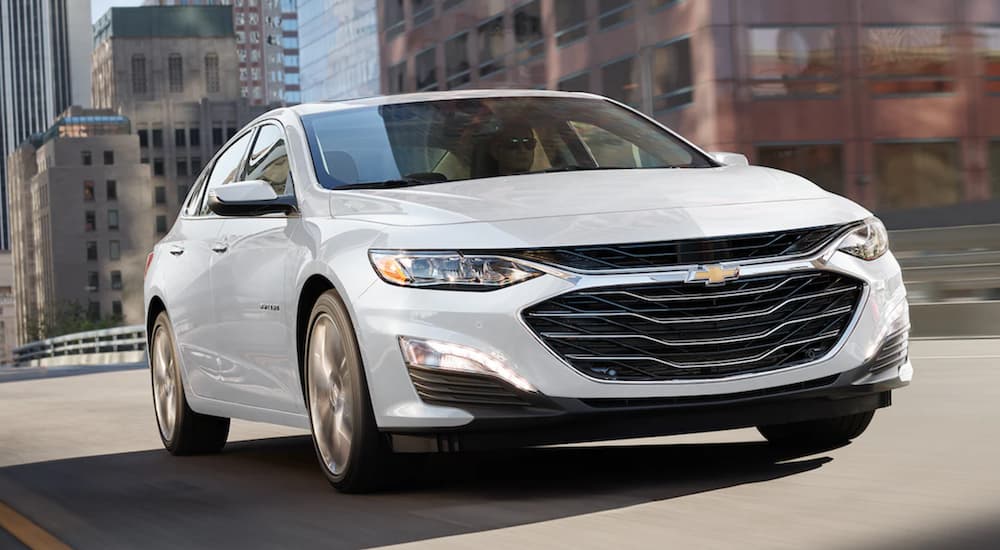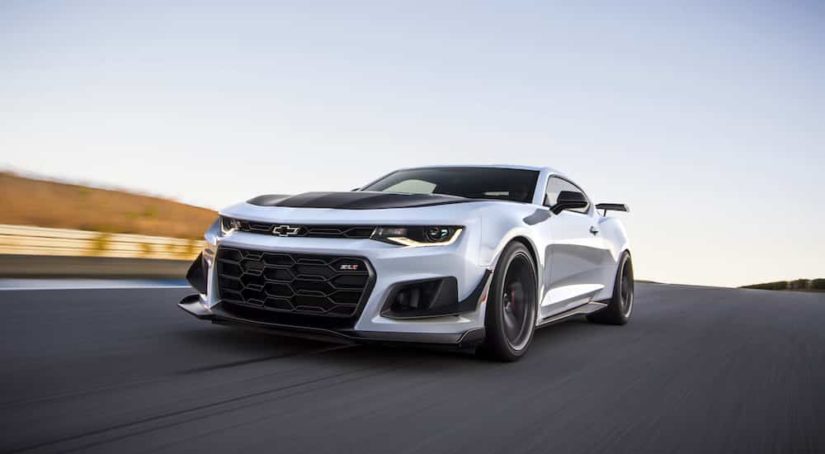So you’ve decided to find a used Chevy for your next vehicle. Good choice. Chevy is a reliable name, and there are easily-found records and history on how their many models have done over the years, both in terms of safety and return on value. Thanks to its diverse lineup, Chevrolet is also a great brand to shop for a variety of drivers. Those in need of a pickup truck for tough jobs, an SUV for family life, a stylish sedan for corporate life, or a fuel-efficient car for road trips can all find something in the Chevy family. And, because they’re so reliable, you can often find a used Chevy that still has plenty of life left in it, so you can enjoy the savings associated with a pre-owned car without dealing with maintenance issues.
At this point, you’re probably looking up your nearest used Chevy dealership, but before you make your way to check out cars, there are some cost considerations to plan for. You’ll want to think about what size of down payment you can make, how long you want your loan to last, what sort of interest rate you could qualify for, and what your insurance will cost. Many drivers only think about the upfront costs of buying a car but forget that the spending doesn’t stop there. You have to pay for insurance monthly (or yearly or semi-annually, depending on your plan) and should consider that when picking out your car. Insurance companies decide on premiums for used cars slightly differently than how they do new cars, and within the Chevy family, there are used cars that are known to be more or less expensive to insure. Here’s a look at how insurance companies choose your rate based on your vehicle and which Chevys are the most and least expensive to insure.
Which Is More Expensive to Insure: New or Used Cars?
The simple answer to this question is this: used cars tend to cost less to insure than new ones. That’s good news for those on the hunt for a used Chevy. The reason for this is that cars lose their value over time. So, in the event of an accident or theft, when your insurance company would have to pay up the full value of your car, that figure would be less on a used car than on a new one.
Here’s the catch: the safety of a vehicle is also a consideration in your insurance premium. Newer cars tend to have driver-assist features that can reduce the chances of accidents, and that’s something insurance companies consider, too. Luckily, if you get a used Chevy in the 2018 to the 2021 range, you will see many of the same safety features you’d see in a new Chevy. So, safety concerns for newer used Chevys shouldn’t cause an increase in your insurance.
Other Vehicle Factors That Impact Your Insurance Rate
There are many factors that an insurance company takes into consideration when setting your premium. These might include your age, where you live, what you do for a living, your driving record, and even your level of education. The below-listed factors only cover how the vehicle you drive specifically impacts your insurance rate.
Safety Record
We touched on this briefly above, but insurance companies have access to massive and comprehensive records showing how safe a car has been proven to be. Overall, some cars fare better in accidents than others, and thanks to the driver-assist features found in many cars today, some get in fewer accidents than others in the first place. So this is a top thing an insurance company will look at.
Size of the Engine
Sorry speed devils––insurance companies are wise to the fact that if you opted for the biggest engine available, it was probably for a good reason. Well, actually, for a “bad” reason––you want to speed, and insurance companies know that speeding correlates with more accidents and more payouts for them. So, if you have a big engine, you could see a big insurance premium.
Average Repair Costs
Insurance companies also consider what it will cost to repair your vehicle or replace its parts. If it has expensive and rare parts, your insurance will go up. If it relies on a small group of highly specialized technicians to fix it, the premium will go up.
Theft Rates
Another record insurance companies look at is the theft rate for your make and model. If people love to steal the particular car you’re buying; the insurance company will probably hike your rate up.
Vehicle Size
This is another somewhat complex factor. On the one hand, larger vehicles tend to cost more to replace than small ones. However, they also tend to sustain less damage in accidents than smaller vehicles, which can make them more affordable to insure. You’ll have to give your insurance company the details of the cars you’re considering to get the exact figures.

The Most and Least Expensive Used Chevys to Insure
Now that you understand a bit about how insurance companies price premiums for used cars, it’s time to look at the most and least expensive used Chevys to insure. These are just some average numbers to give you a ballpark number, so you will see differences depending on the model, year, and insurance company.
The Camaro ZL1
Average annual premium: $1,941
This beautiful sports car has a large engine, which makes it a lot of fun to drive, but also puts it up there as one of the more expensive Chevys to insure. Plus, its parts can be pricey to replace.
The Corvette
Average annual premium: $1,680
Another car that’s pretty and fast, the purring engine of this sports car ranks it as a pricey one to insure. It doesn’t help that people love to steal these.
The Bolt
Average annual premium: $1,529
The energy-efficient Chevy Bolt is a fun and attractive car. It has had its safety issues in recent years (including batteries catching on fire), which could make insurance rates high for this EV.
The Camaro SS
Average annual premium: $1,525
If you’re noticing a pattern, you’re correct: sports cars are expensive to insure. Nobody would accuse all sports car drivers of speeding, but insurance companies make their quiet assumptions.
The Tahoe
Average annual premium: $1,319
The Chevy Tahoe starts to see a lower premium than the small, sporty cars higher on this list. It is rich with safety features, and its large frame helps it do well in accidents. It’s also more difficult to steal a car of this size compared to a smaller one.
The Cruze
Average annual premium: $1,277
With a modest engine, tons of safety features, and a low spot on the priority lists of thieves, the Chevy Cruze isn’t too expensive to insure.
The Malibu
Average annual premium: $1,271
If you’re looking for a smooth-handling and stylish sedan that isn’t too pricey to ensure, check out a used Malibu.

Buy Used to Save on Insurance
Buying a used Chevy can be a smart move, especially if you stick to one from more recent years. You’ll enjoy the savings you get with a used car, with all of the features insurance companies like, such as driver assist systems and remote locking functions. And since insurance is typically less expensive on a used car, you’ll keep seeing the savings, even after paying for your vehicle.
Some cars will always be more expensive to insure than others, just because of their nature. Call your insurance company before deciding on your used Chevy. Tell them about the exact model and year you’re interested in, and ask for a quote. A little bit of research before you buy can help you find the best model and insurance plan combo to fit your budget.



